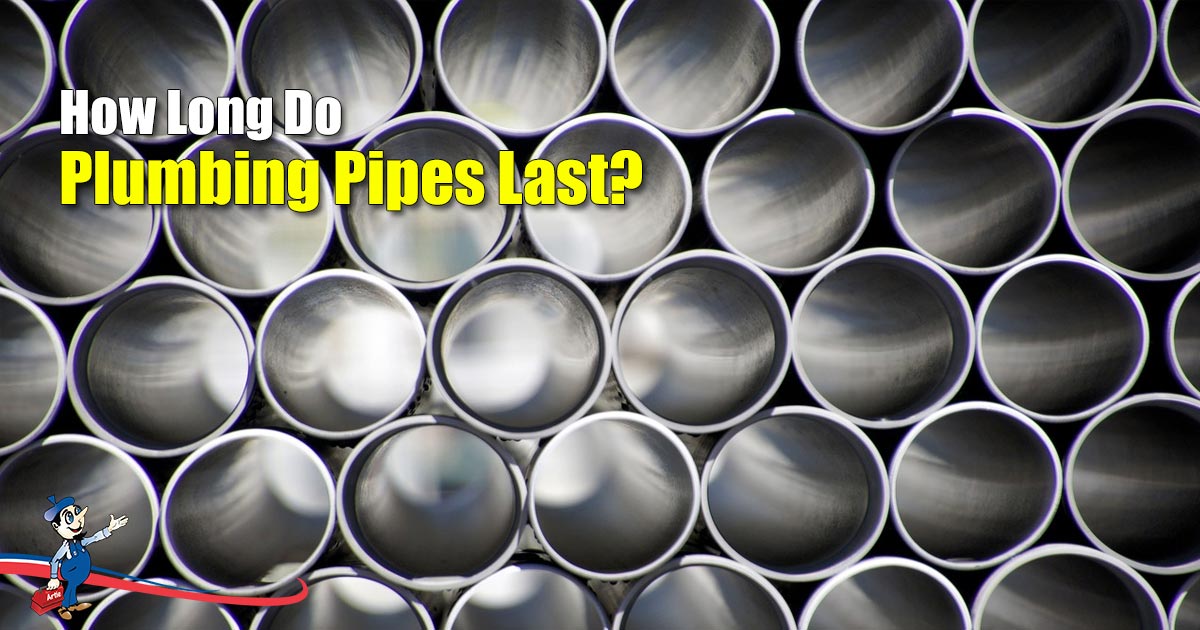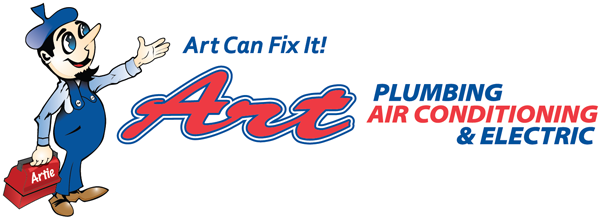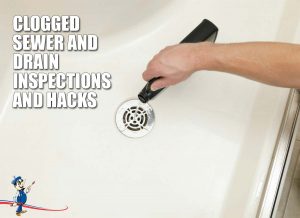How Long Do Plumbing Pipes Last?

Often things that are out of sight tend to be out of mind, and with plumbing pipes, this is usually the case. Plumbing is installed in your home via a piping network that is nestled safely and securely behind walls and under flooring. The downside of this is that it makes it harder, or impossible, to see wear and tear until it’s leaking from your ceiling or water is running down your wall.
If your home is slightly older, you may need a plumbing inspection performed to see how old the pipes are and if they are in need of some updating or repair. While it’s hard to see the condition of your pipes, especially the insides of them, we at Art Plumbing, Air Conditioning & Electric are here to help you identify signs of wear and tear in your plumbing.
How Old Are Your Plumbing Pipes?
When you bought your home, you should have received a home inspection report, this report will let you know what material your pipes are made from. Knowing what material, they are and how old your home is will help you determine if it’s necessary to do an inspection. The average pipe age of the most common pipe materials is:
Supply Pipes
- Brass lasts about 40 – 70 years
- Copper lasts above 50 years
- Galvanized steel tends to last 20 – 50 years
Drain Lines
- Cast Iron lasts 75 – 100 years
- Polyvinyl Chloride (PVC) lasts indefinitely
Homes built in America in the 1970s-90s used a lot of Polybutylene piping, which is known for frequent breakages. This type of piping is common in Florida and it is worth knowing if you have them and if they need to be repaired or replaced.
Additionally, lead piping was installed in homes built in the 1900s, which have a life of 100 years. Unfortunately, lead has been proven to be toxic and a serious health hazard in your drinking water. Call us to inspect the lead content in your water if you suspect that your home may have lead pipes.
Factors Affecting Your Homes Plumbing Pipes
Replacing your entire plumbing system can be an intensive project, but by maintaining your pipes you could avoid any unnecessary damage. Here are some factors that affect the condition of your pipes:
High pressure
If the water in your piping system is at a high pressure, this could be causing constant stress on the valves, joints, and faucets. This kind of stress could be unnecessarily aging the entire system – at Art Plumbing, AC & Electric, we can consult with you about your water pressure and even lower it if we find that it is too high for what you need.Hard Water
Water in certain areas which is higher in mineral content, such as calcium or magnesium, is called ‘hard water’. Hard water ages your piping system faster because it corrodes the inside of the plumbing pipes, which may lead to leaks.Blockages
Minerals in your water may form a build up inside the pipes which restricts water flow and increases pressure on the whole system. When a blockage occurs, it interferes with the water pressure and affects the efficiency of your household water appliances.Corrosion
Consistently hot water, a pH that is more acidic, salt, and hard water are all corrosive to your plumbing pipes. Corrosion scratches or eats away at the pipe wall interior, and over time the integrity of the pipe wall degrades and little flecks of piping may break off and enter the water stream. This is both dangerous to your health and can cause damage to your household water appliances.
Signs of Trouble in Your Plumbing Pipes
Water flowing down your wall is an obvious sign that your pipes need attention, but often by the time they make themselves known it is usually too late. We suggest taking a look at our list of possible signs, some of which are indications of a problem even if you may think they aren’t.
Examine Exposed Piping
Where you have exposed piping, notice if there is any discoloration, staining, dimpling, flaking, or any other sign of irregularity. These signs mean that the pipes are compromised and need to be inspected by a licensed plumber. If the exposed pipes look damaged, there is a high chance that other pipes in your home may also be damaged.
Water Color
If your water is not running clear, but is a hue of brown, yellow or red, this may indicate that there is some decay in your piping system or that rust has entered the water stream. Additional signs may be a metallic taste and tiny flecks of rust in the water. We recommend contacting a plumber immediately and refrain from drinking the water if you notice this.
More Signs to Watch Out For
- Frequent clogging in toilets and drains
- Low or worsening water pressure over time
- Water bill increasing even though your usage remains the same
Though these signs may seem insignificant, having them looked at may make the difference between replacing a small section of piping, or large sections of walls and ceiling. If you notice any of these signs call Art Plumbing, AC & Electric to schedule a plumbing inspection. After all, prevention is the best cure.








